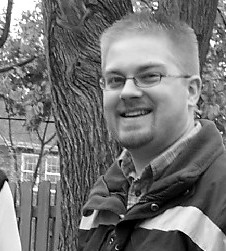Dear Mr. Bush:
As a youth minister and advocate for youth, I read with great disappointment a report in U.S. News and World Report about your recent signing of Florida’s “A++ Plan.” In my mind, and consistent with brain research on adolescents, this is a misguided attempt at reform in the educational system that does not in the end address the basic problem it’s trying to solve.
The most offensive part of the story was a quote from Florida’s chancellor of public schools, who said “You’ve got kids who wander aimlessly for 13 years. It’s like an eternal childhood…”
No. It’s like a normal childhood. The brain in teenagers is growing at a rate that is only matched by the rate the brain grows in infants. The frontal cortex—the center which controls long-term planning and judgment—is still in a very fluid state, sometimes through the early 20s.
At this stage of their lives, youth do not need to be turned into specialists by choosing a “major” at the beginning of high school. A plan that tracks students down too-specific corridors like this one may let them focus on an interest for a little while, but in the end it will obscure other interests that might have come out were they given the chance to explore the whole slate of choices available to them. In the short span of this letter, I do not even consider that a wide range of new fields of study will open up in the short time these students are in high school.
Youth changing their minds is not a bad thing. Taking one interest for a while, then another, then yet another, is simply the way these students role-play and imagine their lives to find their strengths.
What will do more to fix the problems rampant in our educational system isn’t greater pressure on students, but higher standards and training for teachers. They need to be trained in interactive, media-rich classroom methods, using examples that connect with the world their students live in. Textbooks must be updated more regularly to include changing technologies. Assignments need overhauling so they rely less on rote knowledge (which is good for learning the ABCs, but not more complex concepts) and more on application into life.
Above all, teachers need to be trained to care about their students as young humans, and they must be passionate about the subjects they teach. Any student can learn any subject when he or she is taught by an adult who cares deeply for both student and knowledge.
Sincerely,
Isaac Arten
Youth Minister, the Church of St. Michael and St. George—St. Louis, MO
6.14.2006
Subscribe to:
Post Comments (Atom)


1 comment:
Bravo! *applauds*
Post a Comment